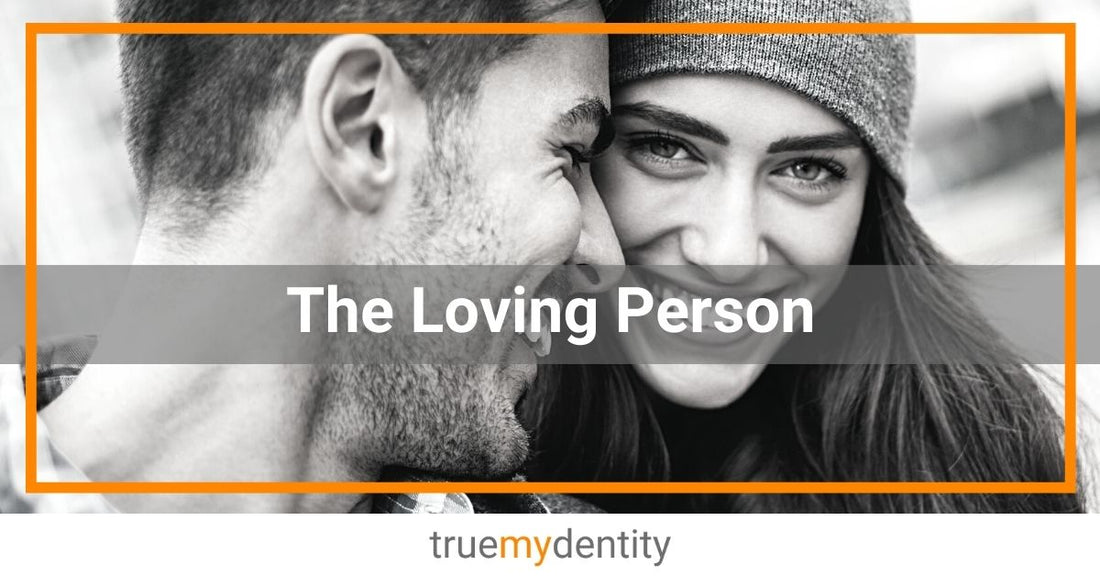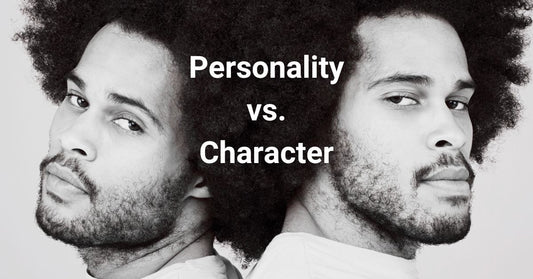
Being Loving | What Does it Mean to be Loving?
Luke FeldbruggeShare
Being loving is a superpower because if we’re honest, being loving is not the easiest thing to do sometimes. But for the loving person, with the gift of a dominant loving character, there’s no hesitation in sharing their love, affection, admiration and kindness with someone. So what does it mean to be loving? This post looks at that specific question and covers the ten positive characteristics of a loving person, the importance of loving yourself, the benefits of loving your job, and how to be more loving in your relationships.
Key Takeaways
- Learn the meaning of being loving and its importance in various relationships.
- Explore the positive characteristics of a loving person including kindness, empathy, and trust.
- Learn how loving yourself contributes to overall well-being and mental health.
- Discover tips on how to be more loving in relationships and daily interactions.
- Explore the benefits of loving your job and doing what you love.
- True Mydentity's questionnaire can help you identify your most dominant positive character traits, and learn if being loving is one of your more powerful qualities.
What is the Meaning of Loving?
Merriam-Webster's LOVING definition (adjective for a person) is: affectionate; feeling or showing affection, warm regard, fondness or tenderness.
True Mydentity prefers to add a little bit more flavor to that meaning of loving.
Being loving means showing someone you care about them; whether that’s showing a strong affection for them, or feelings of admiration, compassion or concern. Loving qualities are effective when shared between lovers, family members, friends, and even strangers. Clearly there are different socially accepted comfort levels that need to be understood and practiced when sharing your loving qualities with each of these groups. Nonetheless, behaving in a loving manner is generally a good thing for all involved.
If you are a loving person you show love through your words and actions. You’re typically motivated by a desire to bring happiness, joy, comfort, and calmness to those around you. In addition, being loving also means loving yourself by treating yourself with kindness, compassion, and understanding.
There are benefits on both sides when you choose to share your loving powers. Both people (giver and receiver) tend to feel more happy and joyful, stress is typically reduced, empathy is established, respect is mutual, the relationships grow stronger and deeper, mental health improves, confidence grows, and each person tends to be more grateful and appreciative. Some of these benefits can be attributed to the release of happy chemicals in the brain, like oxytocin and dopamine, triggered by the loving words or actions shared between people.
Like we said, being loving is a superpower.
Complete our questionnaire and find out if being loving is one of your most dominant character traits, and which of the other 58 traits are also your most powerful qualities.
10 Positive Characteristics of a Loving Person
Here are ten common qualities of a loving person. Not all loving people share these positive characteristics, but many do. They are amazing people with amazing loving powers, and if you have one or several in your life, count your blessings.
- ADMIRING - The loving person naturally admires the beauty, talent and inspiring traits of the people and the things around them.
- EMPATHETIC - To be loving opens the doors of empathy, to share in the emotions and understand what another person is feeling.
- GENEROUS - Loving people prefer to be generous with their time and money because their reward is to feel the happiness and gratitude felt by others.
- GRATEFUL - The loving person is grateful for what they have, and what they receive, because often their loving nature is reciprocated by those who receive it.
- KIND - Loving people tend to be friendly, considerate and affectionate. And, typically there are not many restrictions to showing it. Oftentimes they will go out of their way to share their kindness with others.
- NURTURING - A loving person is often a natural care-giver who offers support, encouragement and protection. All done in the name of love.
- PATIENT - Sometimes to be loving means one must accept delays and issues without becoming upset, annoyed or anxious.
- POSITIVE - The loving person provides compliments, adoration, affection, encouragement, optimism, constructive feedback, and a good ‘ole pick me up when needed. May even throw in a hand shake, pat on the shoulder, or hug for good measure.
- THOUGHTFUL - Not only are loving people kind and generous, but they’re also thoughtful in considering the needs of others and are often sympathetic to one’s troubles and struggles.
- TRUSTING - A loving person typically has strong trust in others because they see the best in people. They are not suspicious. They do not hold grudges or carry resentment because that interferes with their loving ways.
The Importance of Loving Yourself
Loving yourself must be done through your actions. Self-care, self-confidence, stress management, managing your emotions, your mental health and your overall well-being is greatly determined by how you behave and the actions you take. And, it starts in your mind:
- How you choose to see yourself
- How you choose to speak to yourself
- How you choose to reward yourself
- How you choose to discipline yourself
- And, how you choose to love yourself
Give yourself a pep talk (out load) and keep the shame talking on the sidelines. Believe in yourself, learn what you’re good at, and put those skills into practice. Reward yourself for a job well done. Maybe it’s time to learn that thing you always wanted to learn, or take that trip you always wanted to take?
Forgive yourself when you screw up. It will happen, but it doesn’t define you. Forgive yourself and learn from your mistakes. Learning from your errors is the most useful outcome of making mistakes. It’s how you grow, mature and gain valuable experience.
Focus on your strengths. Learn your most dominant positive character traits and use them for good; to produce value, assist people and reach your full potential.
Think about the people in your life and the relationships you have (or don’t have). Since you can only control yourself, what are ways you can improve those relationships? Or, after giving it some thought, maybe a few of those relationships have run their course and it’s time to move in a new direction? Either way, try to determine what is best for you and do it in a loving way.
Take a break from the busy, constantly on the go, information highway lifestyle. Take a bath with a relaxing soundtrack playing, and aromatic candles. Escape into a book. Take a walk in your favorite park. But instead of taking the usual path, veer off to a new place, find a spot to sit, and just take in the beauty and sounds of nature. Use your vacation time at work and get away for a while. Remember to give yourself a chance to reset and recharge.
All of these actions help you, take care of you.
Loving Your Job and Doing What You Love
Loving your job and doing what you love can be incredibly rewarding. Talk about the definition of job satisfaction! If you’re not doing it now, imagine waking up to a fresh new day, preparing yourself to spend it doing one of the few things that gives you pure joy. Something you love doing more than most anything else. That sounds amazing, right!?!
There are proven benefits to finding (or creating) the job you’re meant to do. For example, your job satisfaction will be through the roof. Your performance will likely skyrocket. Your positive mental attitude, behavior, and overall focus will likely be off the charts. And, you will probably be more creative in your approach to menial tasks and have a clearer vision when faced with challenges. Your purpose, and your preferred way to contribute, will become easier to see and to define. And, you will love your job.
Why Loving People is so Important
We are biologically built to be social creatures, and part of that social engagement is loving people. Behaving in a loving way toward other people, and receiving love or friendly affection in return, provides many benefits.
Stronger Relationships: When you love another person, you are more likely to build a strong, positive, lasting relationship with that person. When you are able to behave in a loving manner; whether with a lover, family member, friend or complete stranger; you are likely to lead a more fulfilling and satisfying social life.
Increased Happiness: Showing your love, affection or fondness to another person typically opens the floodgates of joy and happiness in your life as you enjoy the experiences of helping, supporting or connecting with other people.
Reduced Stress and Better Mental Health: Behaving lovingly toward others, or receiving some love, affection or fondness from other people has been shown to improve mental health, and reduce symptoms of depression, stress and anxiety. Behaving in a loving way toward other people puts the focus on the positive aspects of your relationships and accentuates the happiness they bring to your life. Loving people is a wonderful way to improve your overall well-being, and the well-being of others.
Sense of Purpose: Behaving in a loving way toward others can provide a sense of purpose and give a richer meaning to life. Your loving ways deliver a positive impact, and contribute to the well-being of others.
How to be More Loving and Affectionate
Being loving is a great way to show someone you’re fond of them. Whether it’s a lover, family member, or friend; and you’ve probably got it down to a science. However if you do not, or you would simply like to be more loving with the people in your life, then here are some tips to practice how to be more loving toward others.
Practice Kindness - Do something kind for someone. The Random Acts of Kindness foundation is completely dedicated to it. They celebrate it, encourage it and help to educate people about it. They’ve even locked down an entire day centered around the theme of Random Acts of Kindness and celebrate it every February 17th in the U.S. and around the world. Doing something kind out of the clear blue, for someone you know or who you have never met, is an amazing gesture and definitely moves you up a notch on the loving scale!
Be Empathetic - Put yourself in someone else’s shoes and try to understand their perspective. Be curious and show interest in their life. If they need a little support, be there when they need it. It could be as simple as asking a co-worker about their weekend, or offering to help a friend who is struggling with something; even if it means just lending your ear to listen without judgment.
Give Compliments - Give people around you genuine compliments; even if it’s a random person you’ve never met who is also pumping gas, or standing in the self-checkout line. Share what you admire about them, or what you appreciate about them, or how impressed you are with what they were able to accomplish. Give them the opportunity to feel a little more special than they did a moment ago. Give them a random boost of happy chemicals in their brain. Who knows, it could be the most loving thing to happen to them all day. So if you genuinely feel someone deserves a compliment, take the opportunity to give it to them.
Be Patient - Being patient is tough sometimes. But, it’s one of the most powerful ways to be loving. When someone makes a mistake or behaves in a way they are not proud of, and they have a pretty good understanding that they screwed up; then a calm, patient approach to the situation will probably work best. Everyone makes mistakes. Take a deep breath and count to ten (so cliche, but sincerely helps). Sometimes a person who messes up simply needs to hear, “Yeah, you screwed up. But we still need you. You’re still important. We still love you. So let’s agree to not make this mistake again, learn from the experience, and find some ways to move past it.”
Be Forgiving - People will hurt you and it may cause anger and resentment toward them. However, you do have a choice whether the person who hurt you can be forgiven. Are you willing to try and repair things and move past the mistakes together? Letting go of resentment and anger, showing willingness and effort toward resolving the issue together, is an important and responsible approach to having a meaningful and loving relationship. To be clear, this tip is not an easy one for most people because it is hard, and it takes real work (may involve personal work, or relationship work with a trained professional), but sometimes working through these challenges together provides more benefit than anything else could offer. That said, please contact a professional therapist if you need some assistance.
Practice Self-Care - Love yourself by taking care of yourself. That means your entire well-being; mentally, physically and emotionally. Did you do something you’re proud of? Reward yourself. Need to feel a little love? Go out with some friends, go on a date, or volunteer to help people in need. Body sore, stiff or tense? Turn on the music and go for a walk/run, work with your hands, or dig into a special interest or hobby. And, try to do something that makes you smile or laugh everyday (ideally it does not involve a login or electronics, and includes interaction with other people).
Seven Tips on How to be More Loving in a Relationship
The key to being more loving in a relationship is to show your affections. Many believe that being loving or affectionate is based solely on physical touch, such as holding hands, hugging, kissing, or sex. These certainly can be ways to show your loving qualities, but there is much more to showing affection, and it can be done in any relationship.
Get to Know Your Love Language - Dr. Gary Chapman wrote a New York Time Best Seller titled, The 5 Love Languages®, and it presents the different ways people prefer to receive and give love. The five ways are receiving gifts, quality time, acts of service, physical touch, and words of affirmation. Read the book to first learn which is most important to you, and then invite your partner to do the same. It provides legitimate insight, leads to good conversations and offers steps to guide you.
Give Compliments (Worth Noting Again) - Show your partner you admire them and let them know when you are proud of them. Highlight what you admire about who they are, or something they did or achieved. Compliment when you are impressed. Even if you are only a little impressed, but still genuinely impressed, share your admiration because a little bit goes a long way.
Be Grateful - Similar to showing your admiration, be sure to tell your partner you appreciate the things they do (especially if they are specifically for you), who they are as a person, and why you are grateful to have them in your life. Some examples of how to do it can be:
- Write a short post-it note with grateful words
- Express your thanks over dinner (or any meal)
- At the end of your day, before you say your final good night, share something with your partner that deserves your gratitude (especially if it involves your partner).
Be Helpful - Support your partner when they need it because you’re the other half of the dynamic duo, and a team of two can accomplish much more than one lone person. Generally speaking, being helpful has a more positive impact if you recognize the need for help and get involved before your partner asks for help. Some examples may include:
- Offer to help with a difficult task or project
- Cheer them on when they are faced with a challenge
- Offer a shoulder to cry on
Be Curious - Stay curious about your partner. Genuinely show interest, ask questions and actively listen to their answers. Observe the little things and over time share your loving observations. Stay curious because there will always be something new to learn as things evolve and time presents you both with exciting and challenging experiences.
Show Your Trust - Give your trusted partner a peek behind the curtain. Offer a special access pass to your less public and more uncomfortable self; to your vulnerabilities, insecurities, and baggage. We all have them. We all struggle with them. A partner who will support you, and help you confront and manage your personal challenges is an incredibly valuable gift. Showing your partner you trust them, confide in them, and appreciate their support; often makes your partner feel their relevance, significance and importance.
Be More Physical - There is a lot of power in gently holding a hand, placing your hand gently on someone’s cheek, locking arms to walk together, or gently massaging one's neck, shoulders or feet. A warm and comforting hug that is a sturdy, but soft, and not suffocating, can lift someone’s spirit instantly. And cuddling while chillin’ on the couch offers comfort, warmth and close companionship. Don’t be shy and let your insecurities control your physical prowess, instead find mutually pleasurable ways to enjoy the touch of each other.
Loving - True Mydentity Style
True Mydentity offers designs on our clothes that highlight 58 positive character traits. The powerful loving trait is one of the 58 character traits featured. We believe if you know your dominant positive characteristics; focus on what you do to learn, work and build relationships using these dominant traits; you will feel more fulfilled and closer to your purpose. And as you improve upon leveraging these positive character traits in those three areas of your life; you move toward discovering your full potential.
If being loving is your thing, make True Mydentity’s Loving apparel part of your character’s power suit; and be the loving person you’re meant to be.
VIEW LOVING APPAREL COLLECTION >>
Complete the True Mydentity questionnaire and find out which of the 58 traits are your most dominant.



